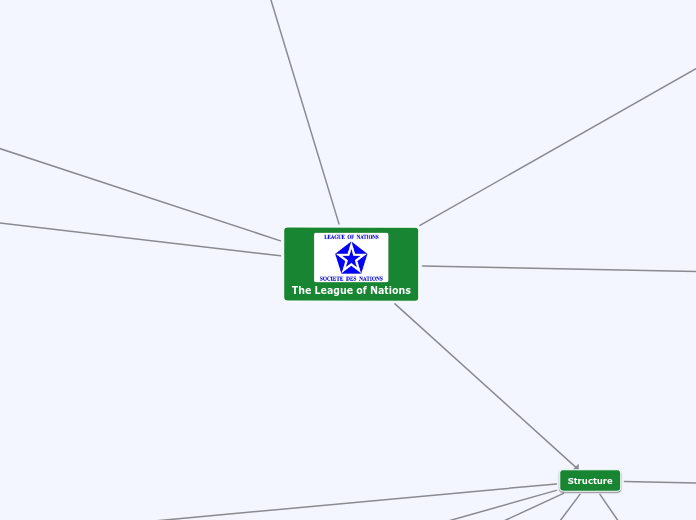
The League of Nations
after WW1
everyone wanted avoid
repeating same situation
agreed League of Nations
organisation resolving international
problems without fighting
would help achieve it
disagreement about the
kind of organisation
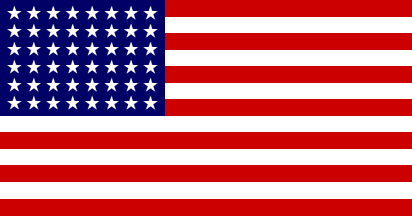
President Wilson
wanted world parliament
all nations represenatives
getting together regularly
his idea won

took personal charge
drawing up plans
had drafted very ambitious plan
League
all major nations would join
they would disarm
would take disputes with other
countries to it
would accept decisions
made by League
would protect one another
other members would stop
trading with it
send troops if necessary
some people
worried by his idealism
angered by his arrogant style

British Leaders
wanted simple organisation
getting together in emergencies

France
wanted strong League
with own army
before USA joining League
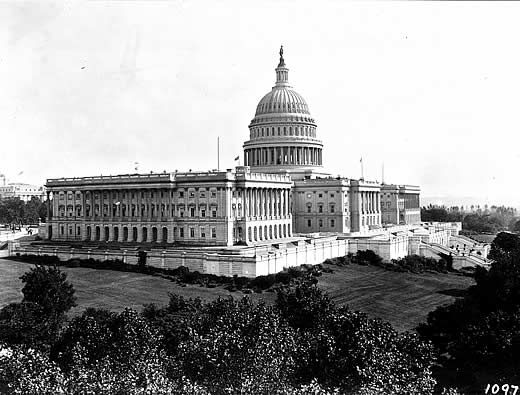
Congress needed
to approve it
idea not so popular
people thought
League was supposed to
enforce Treaty of Versailles
inextricably linked to it
worried about economic cost of joining in
like signing black cheque
USA promising send troops to settle
every little conflict
wanted to stay out of disputes
League would be under Britain
and France control
opposed idea of Colonies and Empires
didn´t agree on safeguarding
their colonial possessions
powerful opposition
joined by Wilson's opponents
Wilson took proposal back
to Congress
the idea couldn´t make it trough
USA never joined League
Aims
Discourage agression
Encourage countries to co-operate
business and trade
Encourage nations to disarm
Improve living and working conditions
Structure

The Council
smaller group
met more often
Temporary members
elected by Assembly
3 years period
Permanent members
Britain
France
Italy
Japan
had a VETO
could stop Council acting
even if all members agreed
if healthy disscusion
didn´t work
could use range of powers
Moral condemnation
decided which country
was the agressor
condemned its action
tell it to stop
Economic-Financial sanctions
members of League
refused trading
with Agressor
Military force
armed forces of members
could be used
against agressor

The Assembly
League´s Parliament
representative of each member
only met once a year
recommend action to the Council
vote on
admiting new member to League
appointing temporary members
Council
the budget of the League
other ideas
put forward by Council
all unanimous decisions
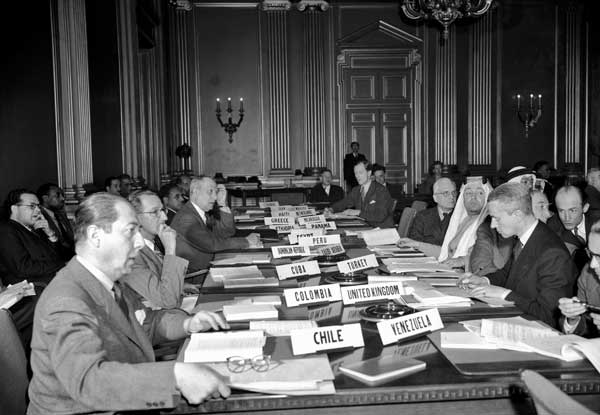
Permanent Court of
International Justice
based at Netherlands
judges from
member countries
took decisions on
border disputes
between countries
gave legal advice
Assembly and Council
no way making sure its ruling
was being followed

The International Labour Organisation
brought together
employers
governments
workers´representatives
once a year
improve working conditions
collected statistics-information
persuade countries
adopt its suggestions
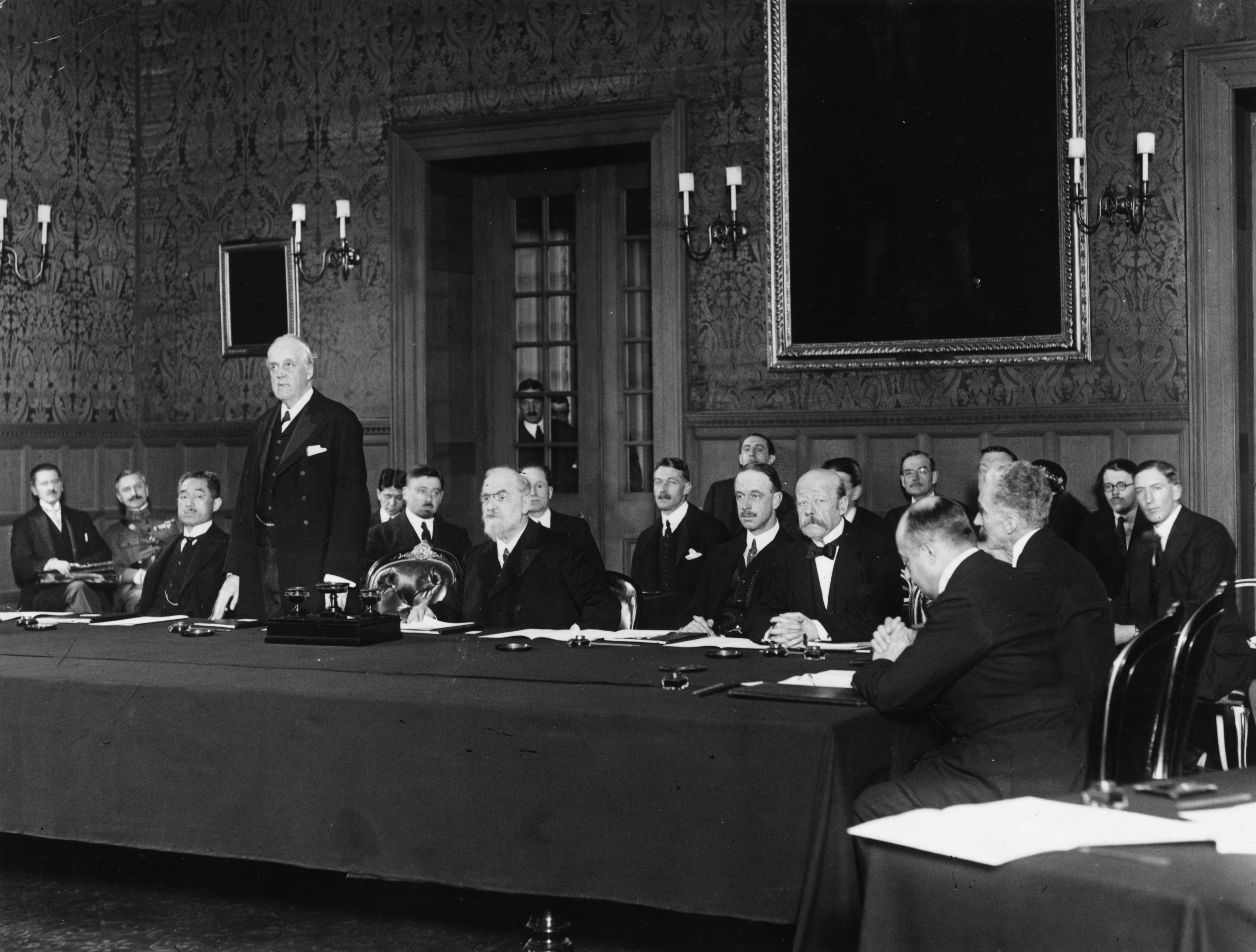
The Secretariat
civil service
kept League meetings
records
prepared reports for
its agencies
had speacialist sections
health
disarmament
economic matters
Commissions

The Mandates Commission
made sure Britain and France
acted in interests of
mandates´people
not in own ones
The Refugees Commitee
helped refugees return
back home
after WW1
The Slavery Commission
for abolishing slavery
around world
The Health Commitee
for dealing with dangerous
diseases
educating people about
health and sanitation
Border Disputes
treaties signed at Paris
Peace Conference
created new states
changed some borders
League´s job
sort out border disputes
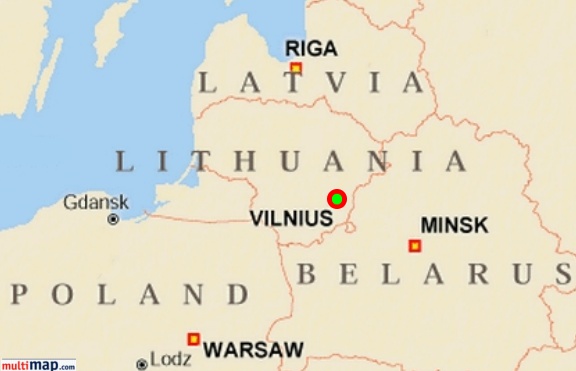
Vilna, 1920
Poland and Lithuania
new created states
Vilna was made
Lithuania's capital
its population largely Polish
private Polish army
took control of it
Lithuania asked for help
both countries members
of League
Poland clearly agressor
didn´t withdraw
British and French troops
supposed to be sent
force Poles out
French didnt want
upset Poland
possible future ally
against Germany
Britain not prepared
going alone
League did nothing
Poles kept Vilna
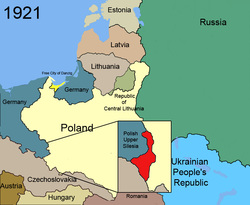
Upper Silesia, 1921
industrial region between
Germany and Poland
inhabitated by both people
both countries wanted
control of it
rich iron-steel industry
organised plebiscite
Silesians voted which
country to join
industrial areas
Germany
rural areas
Poland
League divided region
along these lines
both accepted the decision

Aaland Islands, 1921
Sweden and Finland
control of Aaland Islands
midway between them both
both threatening to
fight for them
appealed to League
studied the case
decided islands should
go to Finland
Sweden accepted decision
war was avoided

Corfu, 1923
islands disputed
Greece
Albania
The Conference of Ambassadors
appointed Italian
general
Tellini
to supervise
Tellini and his team
ambushed and killed
Italina leader
furious
blamed Greek government
demanded that it
pay compensation to Italy
and execute murderers
Mussolini bombarded
and occupied
Greek islands of
Corfu
15 people killed
Greece asked for help
League condemned
Mussolini´s actions
Greece had to pay
money would be held by League
until murderers
were found
Mussolini withdrew
from Corfu

Bulgaria, 1925
Greek troops
invaded Bulgaria
incident on border
some Greek
soldiers killed
asked for help
condemned Greek action
ordered to pull out
and pay compensation
obeyed
facing disapproval
from major powers
A better world
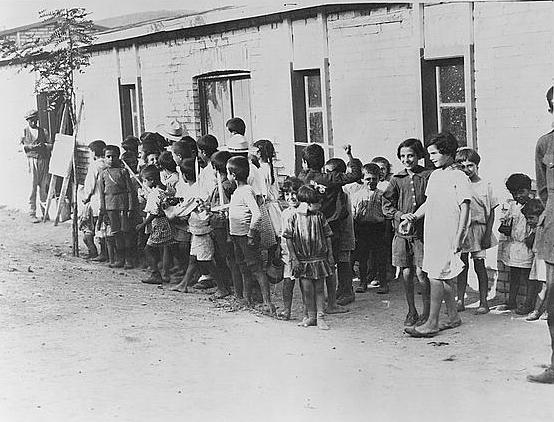
Refugees
helped refugees and formal
prisioners of war
going back home
first few years
after WW1
helped 400,000 prisioners
returning home

Working Conditions
banned poisonous
white lead from paint
limited small children
working hours
campaigned for employers
improving working conditions
introduced resolutiom
48-hour week
8-hour day
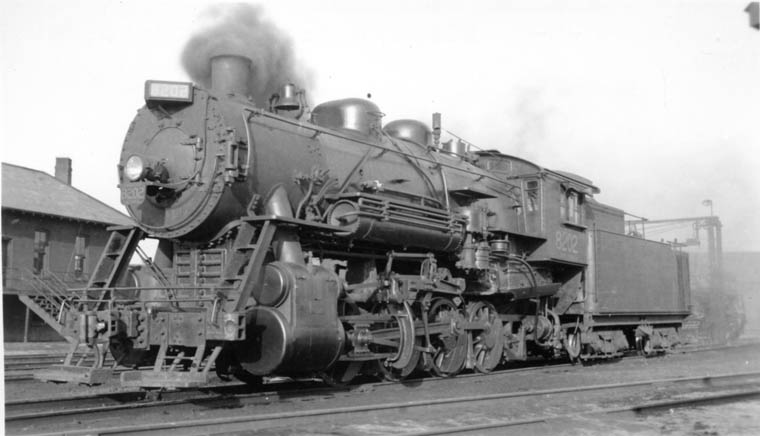
Transport
made recommendations on
marking shipping lanes
produced international highway
code for road users
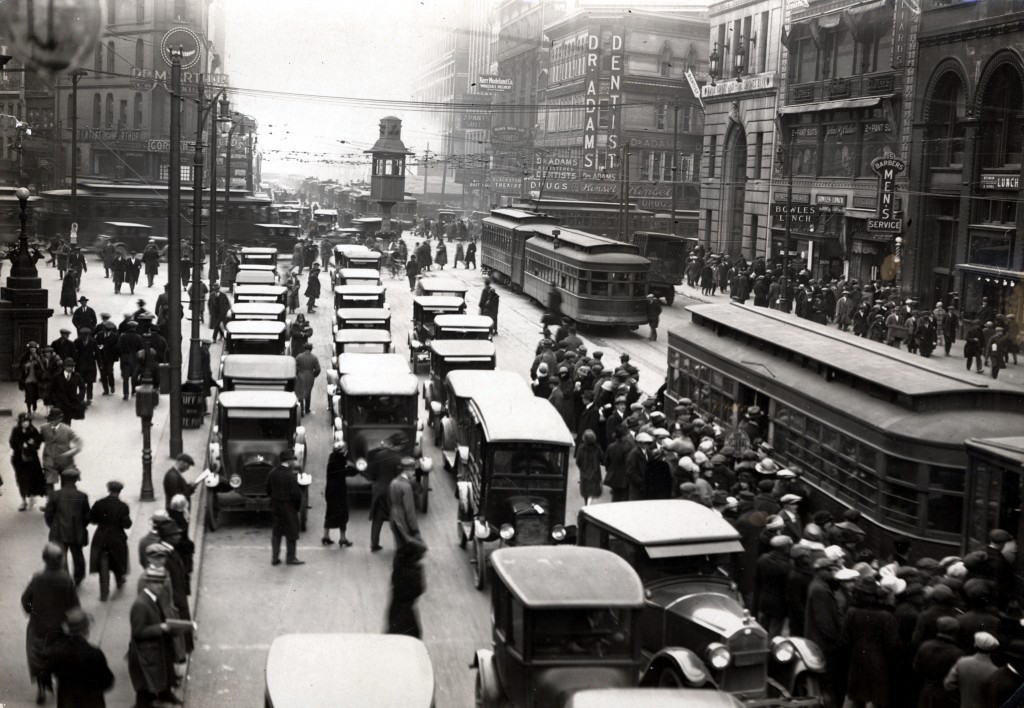
Social Problems
blacklisted four
huge companies
involved in illegal
drug trade
freed 200,000 slaves
organised raids against slave
owners and traders in Burma
kept careful records
on what was going on
provided information in
determined problems
